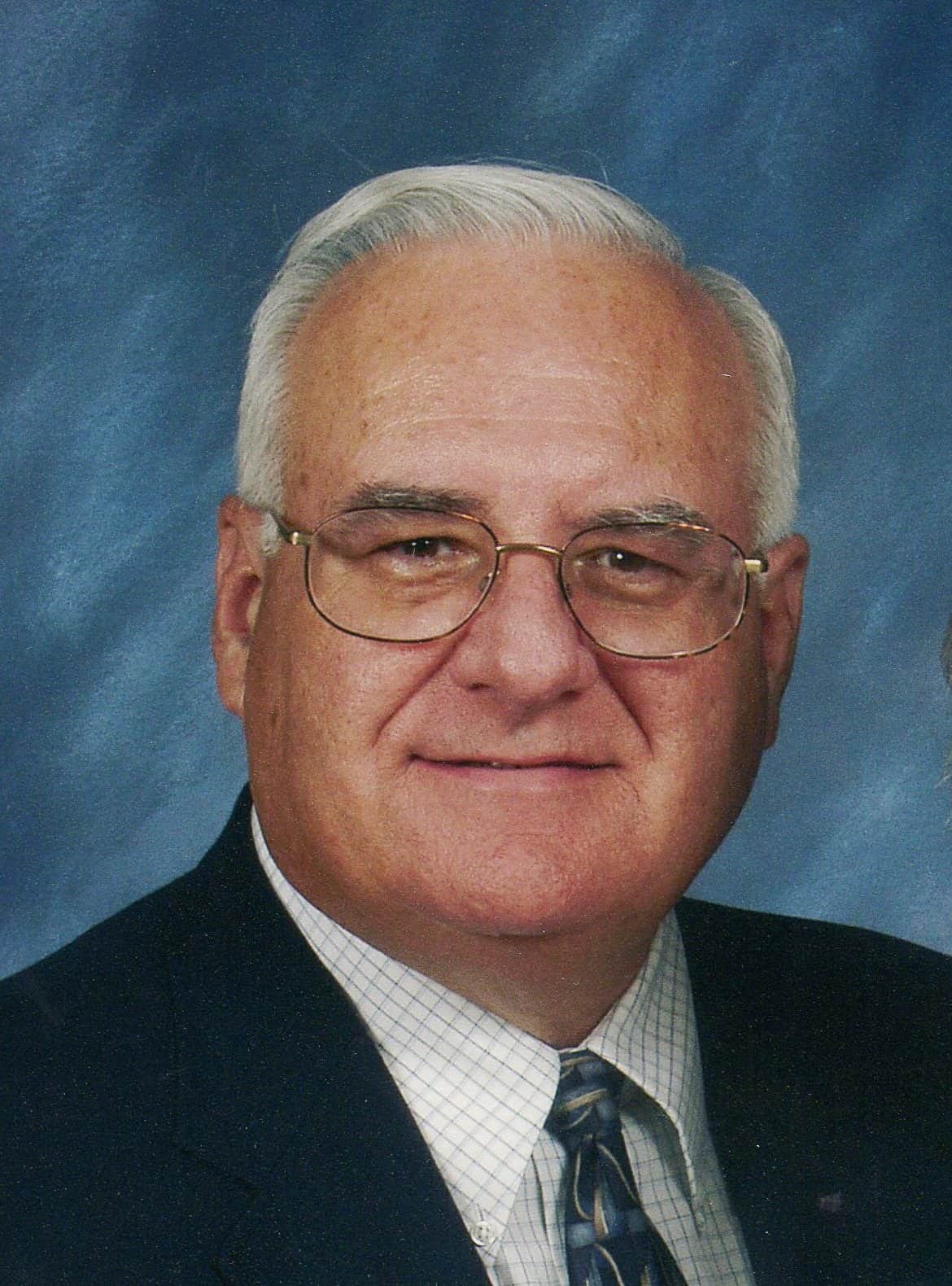
By Hon. Jess Clanton Jr. (Ret.)
Changes in laws and in everyday practices seem to crawl along in our court system, usually brought about by absolute necessity and occurring every decade or so. I discovered changes that I hadn’t known about when I returned to the bench for the last 10 months of 2018.
I was filling in for a judge who retired before his term expired. In the 20 years since my own retirement I had mostly substituted for judges here and there for a day or week. This time I shared the load with a couple of judges from other counties. One did only small claims and the other took some of the divorce workload.
Some of the changes I encountered were budget driven. For example, imagine my surprise when I learned that due to tight budgets many of today’s judges are furnishing their own robes, desks, legal pads, pens, even gavels.
I had my own robe from years of service as an Active-Retired Judge. I brought it with me to counties where I was assigned to fill in for other judges or in empty judicial slots awaiting elections. My business card read, “Have gavel, will travel.” In counties with no money to replace robes, old ones just hung around in courthouses where past judges had left them, sometimes for decades.
My desk in chambers when I was filling in for the early-retiring judge was the personal desk of the previous judge. He wanted it back when no longer needed. One drawer opened all by itself, sporadically.
Before I retired from my regular post, the judge elected to replace me sent over his personal desk from his law office. It was a nice desk. I had made do with the desk the court purchased for my use when I was elected.
About once a month during my fill-in assignment I was furnished a single new legal pad. I found that if I left it on the bench, it would disappear mysteriously. To avoid being without one, I bought my own, as the previous judge had done.
The same process happened with scratch pads and pens. During my 10 months, there was never a gavel on the bench. I did not purchase one, relying instead on the heavy stapler in case I should need to bang something (I didn’t).
I attended law school back in the days when law students learned to use West Publishing’s “pocket-part” updates for their statute books. Over my career, using these pocket-part inserts became so instinctive and routine that I never dreamed of doing legal research without them.
My first week back on the bench I learned that our newest pocket-parts were five years out of date! Only the County Law Library had an up-to-date set. How did judges do legal research? On the internet! Oh, I could do it on-line, too, but at about 20 percent of the speed I used to do it with the books.
The new young lawyers told me that in law school they never used books for research, only computers. Did I ever feel old. Now, what was my latest Kelpro password? (Kelpro is a computerized password-protected filing system for civil, criminal, juvenile and adoption records. If one has access to Kelpro, there is no need to have a file pulled by the clerk – it’s on the computer!)
Our county is a rural one with about 14,000 residents. Although we have a newer courthouse, security planning was in its infancy when it was built, and not much money was allocated to address such concerns. The sheriff’s office and jail are in an adjoining building with secret staircases for use in moving prisoners, but there is no protection for the front doors or the courtrooms, except during jury terms. A magnetic locking doorway is used during days when jurors are present. At other times there is nothing but warning signs to deter a deranged individual from bringing a weapon to court.
To prevent someone from hiding a weapon in the lectern, I drilled holes and screwed the top shut. There are no drawers in the counsel tables. I moved a heavy bookcase to block prisoners from easily getting behind the bench.
Our sheriff and new judge are working to have a video appearance system installed so that groups of prisoners will no longer have to be brought to the courtroom for their initial appearances and arraignments. Not having prisoners in the jury box in a courtroom full of relatives, spectators and arrestees on bond will improve security significantly. I worry about a spectator tossing a weapon to a prisoner in the courtroom.
Oklahoma has state laws that prohibit weapons in courthouses. Law enforcement officers are exempted, of course, as are judges who have had C.L.E.E.T. (Council on Law Enforcement Education and Training) firearms training. To my surprise, I discovered a small gun safe in one of the drawers in my desk, which had been used by a previous judge. It beeped every few minutes and when I tried to stop it, it only beeped louder. One judge opined that it must have a low battery.
I never carried a firearm to court in my career. I know that bullets will go through walls and people and using one could result in horrible mistakes.
Rural courthouses need money for security now, and to ignore that need is to invite disaster. There is nothing to prevent someone from bringing a weapon to our courthouse except during days when a jury happens to be in session, which isn’t often in a rural county. Training to counter an active-shooter, such as the ALICE training, is essential for courthouse personnel. ALICE stands for Alert, Lockdown, Inform, Counter and Evacuate.
During my 10-month term, stacks of warrants greeted me almost every day. Some required probable cause determinations. Most were for non-payment of fines and costs. After the arrests were made, a hearing was necessary to determine whether the failure to pay was willful and could have been avoided. Earlier it had been determined that the minimum payment would be $50 a month. I always thought that amount should have been lower so there would be more flexibility for the sentencing judge and the court’s cost administrator.
The many hearings I had were short but frequent and time consuming. Rarely did they result in jail time or revocation of suspended or deferred sentences for willful failure to pay, but still, many defendants could not post bond before their hearing.
Procedurally, I was surprised by several changes. The district attorney’s open-file policy today has all but eliminated preliminary hearings in felony cases, so there are far fewer transcripts for the court reporter to prepare. Most pleas, felony and misdemeanor, are now plea agreements. Cold-pleas are rare.
In 10 months I ordered only one or two pre-sentence reports. Evidentiary hearings and jury trials are now far fewer in all categories of cases. Appointed Guardian Ad Litems are no longer paid for by the court fund unless it is the judge who needs the services and reports.
The use of Court Minutes to make a record of such events as appearances, continuances, hearings, decisions, etc. has increased significantly. Court Minutes are short, hand-written accounts of who was present, or not present, and what the court did that day. Far fewer formal documents are prepared by attorneys for my signature; they use Minutes instead. This has speeded up proceedings and lessened the need to re-visit cases to sign formal orders, but I discovered that sometimes in the scurry of proceedings, “agreed” Minutes would be filed without my knowledge.
Another area of change has been the huge increase in self-represented litigants, who often use forms obtained from the internet. Most internet forms say they require signing by a “Circuit Judge.” We don’t use the title Circuit Judge in Oklahoma, so I had to be very careful to ensure that these forms complied with our laws and procedures.
I spent a good deal of time reviewing pleadings filed by self-represented litigants, some hand-written. I recall years ago that a jail inmate, unhappy with the food in the jail, brought a letter of complaint to the court clerk along with a ham sandwich and insisted on filing the sandwich in his felony case. I finally convinced him that we would allow him to file a certified copy of the sandwich but not the real thing, so that’s what he did.
Changes are inevitable. Judge for yourself which ones are welcome and which ones still need work. Attorneys are helpful when asked, and it is always good to have the perspective from the other side of the bench.

CHICAGO – The American Bar Association Judicial Division announced recently that TheNational Ju...

The National Judicial College is mourning the loss of former faculty member Judge Duane Harves, who passed ...

As the world manages an evolving natural environment, The National Judicial College announced today that it...

Do’s Manage your cases systematically Devise a system that works for you and your organizational...

After 22 years of teaching judges, Tennessee Senior Judge Don Ash will retire as a regular faculty member a...
